Filter by
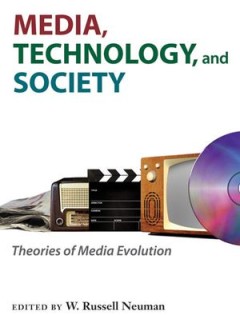
Media, Technology, and Society Theories of Media Evolution
In Media, Technology, and Society , some of the most prominent figures in media studies explore the issue of media evolution. Focusing on a variety of compelling examples in media history, ranging from the telephone to the television, the radio to the Internet, these essays collectively address a series of notoriously vexing questions about the nature of technological change. Is it possible to …
- Edition
- -
- ISBN/ISSN
- 9780472900381
- Collation
- -
- Series Title
- -
- Call Number
- -
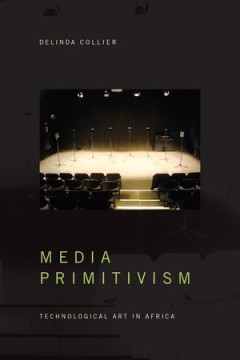
Media Primitivism Technological Art in Africa
In Media Primitivism Delinda Collier provides a sweeping new understanding of technological media in African art, rethinking the assumptions that have conceptualized African art as unmediated, primary, and natural. Collier responds to these preoccupations by exploring African artworks that challenge these narratives. From one of the first works of electronic music, Halim El-Dabh’s Ta’abir A…
- Edition
- -
- ISBN/ISSN
- 9781478090434
- Collation
- -
- Series Title
- -
- Call Number
- -
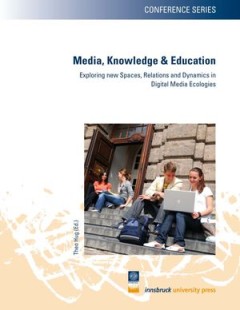
Media, Knowledge & Education Exploring New Spaces, Relations and Dynamics in…
In recent years, new and established media have penetrated, challenged, and often surpassed in significance traditional institutions of socialization and education. Moreover, the social organization of knowledge production and distribution has become highly mediated through increasingly complex combinations of information and communication technologies. The papers in this volume are exploring i…
- Edition
- -
- ISBN/ISSN
- 9783902571670
- Collation
- -
- Series Title
- -
- Call Number
- -
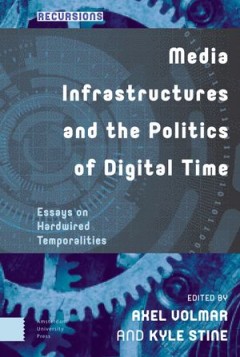
Media Infrastructures and the Politics of Digital Time Essays on Hardwired T…
Digital media everyday inscribe new patterns of time, promising instant communication, synchronous collaboration, intricate time management, and profound new advantages in speed. The essays in this volume reconsider these outward interfaces of convenience by calling attention to their supporting infrastructures, the networks of digital time that exert pressures of conformity and standardization…
- Edition
- -
- ISBN/ISSN
- 9789048550753
- Collation
- -
- Series Title
- -
- Call Number
- -
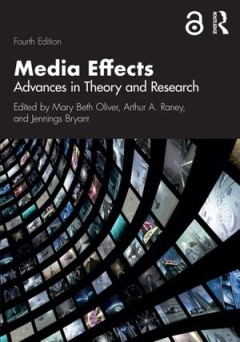
Media Effects Advances in Theory and Research
Now in its fourth edition, Media Effects again features essays from some of the finest scholars in the field and serves as a comprehensive reference volume for scholars, teachers, and students. This edition contains both new and updated content that reflects our media-saturated environments, including chapters on social media, video games, mobile communication, and virtual technologies. In reco…
- Edition
- -
- ISBN/ISSN
- 9780429957024, 0429957025
- Collation
- -
- Series Title
- -
- Call Number
- -
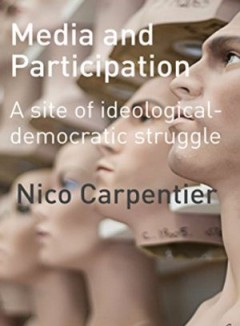
Media and Participation A site of ideological-democratic struggle
Participation has become fashionable again, but at the same time it has always played a crucial role in our contemporary societies, and it has been omnipresent in a surprisingly large number of societal fields. In the case of the media sphere, the present-day media conjuncture is now considered to be the most participatory ever, but media participation has had a long and intense history. To dea…
- Edition
- -
- ISBN/ISSN
- 9781841504070
- Collation
- -
- Series Title
- -
- Call Number
- -
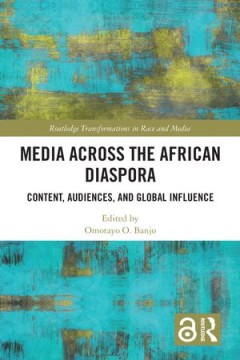
Media Across the African Diaspora Content, Audiences, and Influence
This volume gathers scholarship from varying disciplinary perspectives to explore media owned or created by members of the African diaspora, examine its relationship with diasporic audiences, and consider its impact on mainstream culture in general. Contributors highlight creations and contributions of people of the African diaspora, the interconnections of Black American and African-centered m…
- Edition
- -
- ISBN/ISSN
- 9781351660204, 1351660209
- Collation
- -
- Series Title
- -
- Call Number
- -
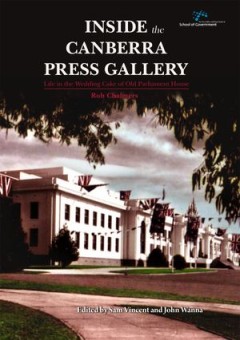
Inside the Canberra Press Gallery: Life in the Wedding Cake of Old Parliament…
Before television, radio, and later the internet came to dominate the coverage of Australian politics, the Canberra Press Gallery existed in a world far removed from today’s 24-hour news cycle, spin doctors and carefully scripted sound bites. This historical memoir of a career reporting from The Wedding Cake of Old Parliament House offers a rare insider’s perspective on both how the gallery…
- Edition
- -
- ISBN/ISSN
- 9781921862373
- Collation
- -
- Series Title
- -
- Call Number
- 320 CHA i
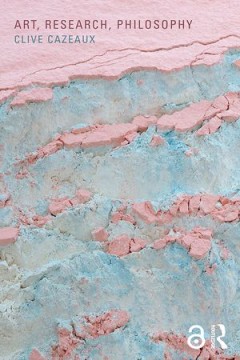
Art, Research, Philosophy
Art, Research, Philosophy explores the emergent field of artistic research: art produced as a contribution to knowledge. As a new subject, it raises several questions: What is art-as-research? Don’t the requirements of research amount to an imposition on the artistic process that dilutes the power of art? How can something subjective become objective? What is the relationship between art and …
- Edition
- -
- ISBN/ISSN
- 9781317654827
- Collation
- -
- Series Title
- -
- Call Number
- 302.23 CAZ a
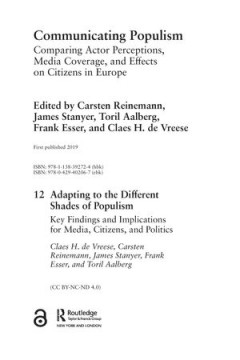
12 Adapting to the Different Shades of Populism
The purpose of this concluding chapter is two-fold. On the one hand, we want to tease out and summarize the key fi ndings of the diff erent chapters. What do these studies tell us, collectively? On the other hand, we want to extrapolate from these fi ndings and the current literature to off er concrete stakeholder advice to politicians, journalists, and citizens who are all confronted with the …
- Edition
- -
- ISBN/ISSN
- 9781138392724
- Collation
- -
- Series Title
- -
- Call Number
- 302.23 STA t
 Computer Science, Information & General Works
Computer Science, Information & General Works  Philosophy & Psychology
Philosophy & Psychology  Religion
Religion  Social Sciences
Social Sciences  Language
Language  Pure Science
Pure Science  Applied Sciences
Applied Sciences  Art & Recreation
Art & Recreation  Literature
Literature  History & Geography
History & Geography